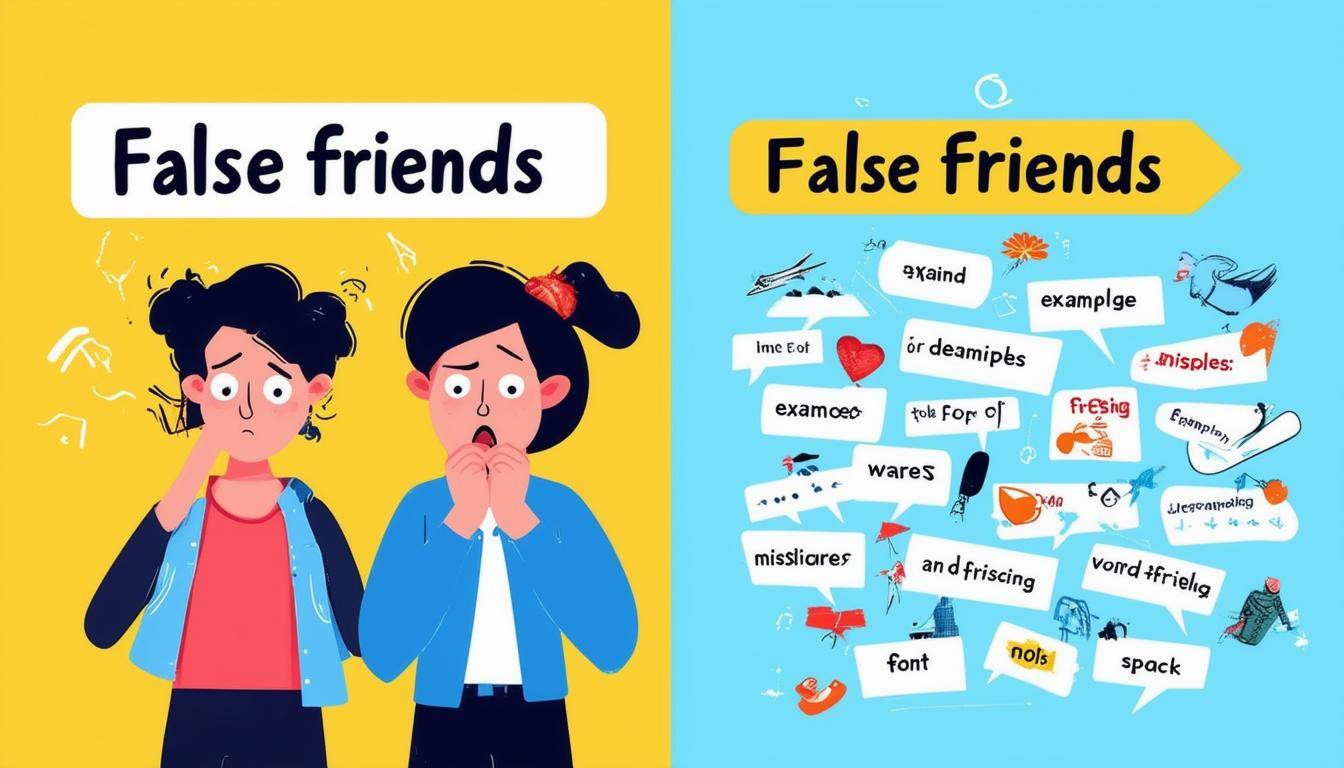3 min read
Essential English-Polish Phrasebook
Essential English-Polish Phrasebook for Travellers Are you visiting Poland but don’t speak the language? Don’t worry! This practical phrasebook will...
6 min read
 POZENA Team
:
February 21, 2024 9:10:28 PM CET
POZENA Team
:
February 21, 2024 9:10:28 PM CET

Unlock the secrets to effectively annotating language data with POZENA's expert tips and best practices. We've done this for 20+ years.
Corporate language data annotation is the backbone of natural language processing (NLP) tasks, serving as the foundation for training machine learning algorithms to understand and interpret human language. By meticulously labeling text data with relevant tags or categories, businesses can unlock the potential for enhancing the accuracy and efficiency of their NLP models.
By delving into the intricacies of language data annotation, organizations can elevate the performance of their AI-driven applications and gain valuable insights into sentiment analysis, chatbot interactions, and content categorization. This strategic approach empowers businesses to harness the power of language data in a way that drives innovation, efficiency, and overall success in the digital landscape.
High-quality linguistic data is the cornerstone for developing robust NLP models that can effectively analyze and interpret human language. When language data is meticulously annotated with accuracy, consistency, and comprehensiveness, machine learning algorithms are empowered to learn intricate patterns and confidently make precise predictions.
On the contrary, poor-quality linguistic data poses a significant risk to the integrity and performance of NLP models. Inaccurate or biased annotations can lead to flawed predictions, compromising the reliability of AI-driven applications and hindering their effectiveness in real-world scenarios. Therefore, ensuring high-quality linguistic data cannot be overstated, as it directly impacts the success and efficiency of NLP solutions in various industries and applications.
When selecting NLP solutions for language data annotation, businesses should carefully evaluate various factors to ensure the tool aligns perfectly with their specific annotation needs and objectives. Considerations such as the range of annotations supported, the platform's scalability to handle large datasets, and the ease of integrating existing systems are crucial in making an informed decision.
Each NLP tool offers a unique set of features, levels of customization, and functionalities, making it essential for organizations to conduct thorough research and trial runs before committing to a particular solution. By selecting a tool that seamlessly integrates with their workflow and meets their annotation requirements, businesses can streamline the annotation process and enhance the efficiency of their NLP models.
Furthermore, the ability of an NLP solution to adapt to evolving annotation tasks and changing business needs should also be considered. Flexibility in customization and the capacity to scale up as data volumes grow are key considerations that can significantly impact the long-term success of language data annotation projects.
Carefully selecting an NLP solution that caters to a business's unique needs and goals is pivotal in unlocking the full potential of language data annotation. Organizations can pave the way for more accurate and efficient NLP models that drive innovation and success in the ever-evolving digital landscape by choosing a tool that offers the right mix of features, scalability, and integration capabilities.
Developing clear and detailed annotation guidelines is essential for maintaining consistency and accuracy in language data annotation processes. These guidelines should encompass a comprehensive overview of the specific annotation tasks and types of annotations required and provide illustrative examples to guide annotators in understanding the intricacies of the annotation process.
Furthermore, it is crucial to regularly review and update these annotation guidelines based on annotators' feedback and the evaluation results of the annotated data. By continuously refining and enhancing the guidelines, organizations can ensure that the quality of annotated data improves over time, leading to more precise and reliable outcomes in natural language processing tasks. This iterative approach to guideline refinement fosters a culture of continuous improvement and contributes to the overall success of language data annotation projects.
Incorporating domain expertise in language data annotation is a strategic approach that can significantly elevate the quality and relevance of annotations. By collaborating with subject matter experts who possess in-depth knowledge of industry-specific terminology, context, and nuances, businesses can gain valuable insights that enhance the accuracy and effectiveness of the annotation process.
Domain experts ensure that annotated data accurately reflects real-world scenarios, making it more relevant and applicable to practical applications. Their expertise can shed light on complex linguistic nuances, cultural references, and specialized terminology that may impact the interpretation of text data by machine learning algorithms.
By leveraging the knowledge and experience of subject matter experts in the annotation process, organizations can fine-tune their NLP models to better understand and analyze language data in a way that aligns with industry standards and requirements. This collaborative approach enhances the performance of NLP applications and fosters a deeper understanding of the nuances and intricacies of language data within specific domains.
Consistency is not just a buzzword in the world of language data annotation; it is a foundational principle that underpins the quality and reliability of annotated datasets. By establishing clear and detailed annotation guidelines, training annotators to adhere to these guidelines, and implementing regular quality checks, businesses can ensure that every annotation is consistent and accurate.
Consistent annotations play a crucial role in the success of NLP models by enabling them to learn patterns effectively and make precise predictions. When the data is labelled consistently, machine learning algorithms can identify and understand linguistic patterns more accurately, improving performance in a wide range of downstream tasks.
Consistency is the key that unlocks the full potential of language data annotation. It paves the way for more reliable and insightful NLP models, ultimately driving innovation and success in the ever-evolving digital landscape. By prioritizing consistency in data annotation practices, businesses can elevate the quality of their AI-driven solutions and stay ahead of the curve in a competitive market.
Quality control and validation techniques play a vital role in maintaining the accuracy and reliability of annotated language data. One of the key techniques in this process is the inter-annotator agreement, where multiple annotators independently label the same data, and their agreements are measured to ensure consistency. This method helps identify discrepancies or errors in the annotations, allowing for corrections and improvements.
Error analysis is another crucial technique that involves thoroughly examining the annotated data to pinpoint any inaccuracies or inconsistencies. By conducting a detailed analysis of the errors, businesses can gain valuable insights into the root causes of annotation mistakes and implement strategies to prevent them.
Validation checks are also essential in the quality control process, as they verify the correctness of annotations through various validation methods. These checks help ensure that the annotated data meets the required standards of accuracy and relevance, ultimately enhancing the overall quality of the dataset.
By continuously monitoring and improving the quality of annotated data through these quality control measures and validation techniques, businesses can optimize the performance of their NLP models. This ongoing process of refinement and validation is crucial in ensuring that AI applications deliver reliable and insightful results, ultimately driving success in the rapidly evolving digital landscape.
When selecting a reliable and experienced data annotation provider, businesses must prioritize expertise in Natural Language Processing (NLP) to ensure the accurate and comprehensive annotation of language data. An NLP-specialized provider brings a deep understanding of linguistic nuances and can effectively handle complex annotation tasks, leading to high-quality annotated datasets that drive the success of AI-driven solutions.
In addition to NLP expertise, data security measures are paramount when choosing a provider. Robust security protocols safeguard sensitive data from unauthorized access or breaches, instilling trust and confidence in annotation. Scalability is another crucial factor to consider, as a provider's ability to handle large datasets efficiently and adapt to changing annotation requirements is essential for seamless project management and timely delivery of annotated data.
Quality assurance processes play a pivotal role in ensuring the accuracy and consistency of annotations. A reputable provider implements rigorous quality control measures, such as inter-annotator agreement, error analysis, and validation checks, to maintain the integrity of annotated datasets and enhance the performance of AI models.
By partnering with a reputable data annotation provider that excels in NLP, prioritizes data security, offers scalability, and enforces stringent quality assurance processes, businesses can streamline the annotation process, elevate annotation quality, and expedite the development of AI-driven solutions. This strategic collaboration sets the foundation for success in leveraging language data for innovative and impactful applications in the ever-evolving digital landscape.
POZENA Multilingual is a leading provider of Human Data Annotation services at scale, which we have offered to worldwide corporate clients for over two decades in numerous languages. Tools, techniques and subject matters changed radically over this long period, but client expectations of speed and quality have only ever risen. We are delighted to put our immense NLP experience at your disposal. Contact us for your free NLP consultation.
Every NLP project is different. Trust us, we've done hundreds of Data Annotation projects for numerous global clients.
Establishing a strong and collaborative relationship with your NLP provider is not just a strategic move but a crucial component in unlocking the full potential of language data annotation services. By fostering open lines of communication, actively sharing feedback, and engaging in collaborative efforts, businesses can effectively align annotation goals with overarching business objectives, ultimately leading to successful project outcomes.
Regular communication with your NLP provider allows for a deeper understanding of project requirements, challenges, and opportunities, enabling both parties to work towards a common goal. By sharing feedback on annotation quality, process efficiency, and project timelines, businesses can drive continuous improvement and optimization in the annotation process, resulting in superior results in NLP applications.
Constant collaboration between enterprises and NLP providers is essential in leveraging both parties' expertise, resources, and best practices to enhance the annotation process. By tapping into the specialized knowledge and experience of NLP experts, businesses can gain valuable insights and recommendations for optimizing annotation workflows, improving data quality, and maximizing the impact of NLP applications.
Businesses can streamline the annotation process through a strong partnership with their NLP provider and achieve superior results in NLP applications. By working together towards shared goals and objectives, businesses can harness the power of language data annotation services to drive innovation, gain a competitive edge, and unlock new opportunities in the ever-evolving digital landscape.

3 min read
Essential English-Polish Phrasebook for Travellers Are you visiting Poland but don’t speak the language? Don’t worry! This practical phrasebook will...

3 min read
Tricky Polish False Friends: Avoiding Common Language Traps Navigating the complexities of Polish translations can be an intricate and demanding...

5 min read
English is the native language for some 360 million of the globe's population (nearly 5% of the world's population) and ranks 3rd in the world...